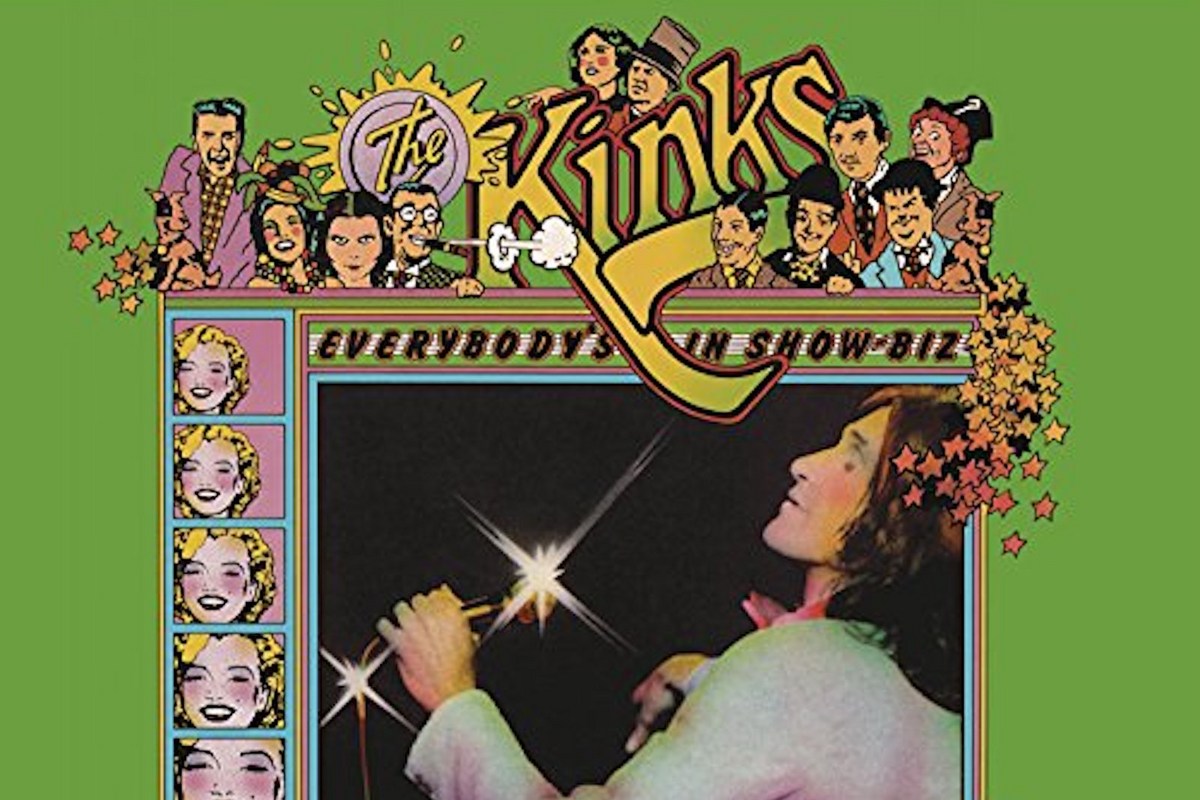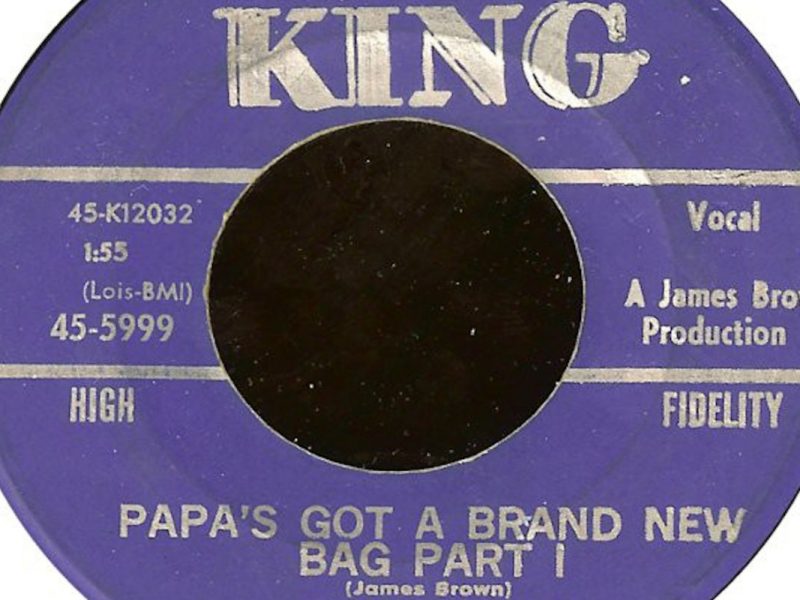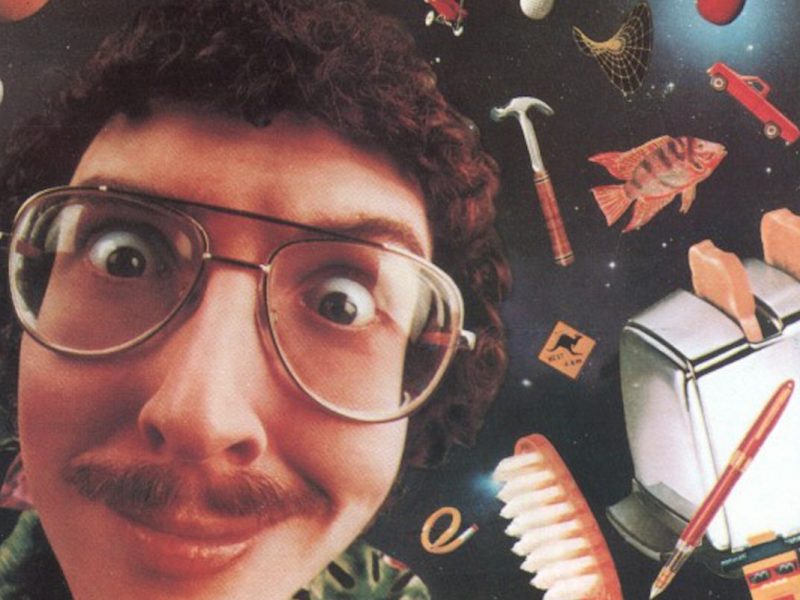After the Kinks tapped into American music on 1971’s Muswell Hillbillies, they continued to take inspiration from across the pond on its 11th album, Everybody’s in Show-Biz.
The LP was a direct product of the group being on the road and, specifically, allowed to tour in the U.S. again after being banned by the American Federation of Musicians during the mid ’60s. An initial fall 1969 return had been problematic, with many shows canceled, but subsequent U.S. treks were more successful and inspired Ray Davies’ sharp eye and keen wit.
“We were touring back in America again – that made a big difference,” guitarist Dave Davies, Ray’s younger brother, tells UCR. “It was a great way of getting back. We were touring America and wanted to maximize it. A lot of ideas came about just while we were touring America. I think it gave Ray a lot to write about.”
Ray had even greater initial ambitions in mind for the project. Beyond new music, he took a camera to make what his brother calls “a home movie. It captured a lot of the comings and goings of touring — just fun, really.” The movie idea was scotched by the Kinks’ new label, RCA, though Ray did manage to make a 45-minute documentary from the footage.
The 10 songs on Everybody’s in Show-Biz, meanwhile, took often detailed stock of the band’s travels, from transportation to food. “Here Comes Yet Another Day” and “Sitting in My Hotel” are travelogue vignettes; “Hot Potatoes,” “Motorway” and “Maximum Consumption” serve up Ray’s thoughts about the food he was presented with on the road. The vaudevillian “Look a Little on the Sunny Side” was a slap at the Kinks’ critics.
Listen to the Kinks’ ‘Hot Potatoes’
And then there was the closing “Celluloid Heroes,” an earnest but wry critique of Hollywood stardom that Dave considers “one of Ray’s most beautiful pieces. … Of course we were both in love with the movie industry and Hollywood, so it was obvious that Ray was gonna write something that was a tribute to these great characters in the movies. If you walk down Hollywood Boulevard, you’ll know what it’s all about. A lot of it was inspired by these great actors who inspired our music, generally.”
Dave wasn’t shut out as a writer on Everybody’s in Show-Biz. His rocking “You Don’t Know My Name” also drew from road experiences, but was rooted in even darker terrain than his brother’s tracks. “I was actually going through a bad time of it, internally, spiritually and psychologically, having a breakdown while I was working, really,” he acknowledges. He ascribes some of his issues to lingering effects from a bad acid trip in 1969 in Los Angeles. “‘You Don’t Know My Name’ came out of one of my psychic aberrations of ‘What the fuck am I doing?’ [and] feeling trapped. But at the same time, I wasn’t able to get out of this weird place. Songwriting became, like, a therapy for me.”
Listen to the Kinks’ ‘You Don’t Know My Name’
Musically, meanwhile, Everybody’s in Show-Biz stayed in the rootsy Americana lane the Kinks explored with 1971’s Muswell Hillbillies, with Dave playing more acoustic guitar and banjo and adding some slide guitar to the mix. The quintet was assisted again by the Mike Cotton Sound, a brass trio that was part of the previous album. “It gave me a chance to do a more Americanized technique on the guitar – a lot of things that were new, definitely new to us,” Dave recalls. “I’ve always loved slide guitar.” He picked up the banjo from his father, who used to play the instrument at family gatherings and events. “One of the first things I picked up, actually, was banjo. He had a five-string he used to play, so it was destined to fit in somehow.”
Also distinguishing Everybody’s in Show-Biz was the second disc of live recordings from shows on March 2 and 3, 1972, at New York City’s Carnegie Hall. Rather than hits, the Kinks’ second official live release featured four Muswell Hillbillies tracks, oddities such as a bit of the title song from the Broadway musical Mr. Wonderful, the Harry Belafonte-popularized “Banana Boat Song,” the Tin Pan Alley standard “Baby Face” and a brief tease of the Kinks’ 1970 hit “Lola.” “It was something that just worked out for us,” Dave says, crediting RCA with supporting the endeavor. “It was a very productive time for us at RCA,” he remembers. “RCA really wanted to step up and promote the band and were up for the things we wanted to do.”
Listen to the Kinks’ ‘Acute Schizophrenia Paranoia Blues’ Live at Carnegie Hall in 1972
That was certainly borne out over the next four years as the Kinks would build on the thematic work of Muswell Hillbillies and Everybody’s in Show-Biz with even more fully realized album and stage-show concepts such as Preservation Act 1 and Act 2, Soap Opera and Schoolboys in Disgrace.
None were great commercial successes, but the Everybody’s in Show-Biz single “Supersonic Rocket Ship” was the group’s last U.K. Top 20 hit for more than a decade. (“Celluloid Heroes,” despite critical acclaim and continuing radio play, never charted.)
(Everybody’s in Show-Biz and Muswell Hillbillies are being reissued on Sept. 9, separately and together in deluxe packages, with bonus tracks and other features. Dave Davies, meanwhile, has published a new memoir, Living on a Thin Line — the follow-up to 1996’s Kink — in the U.K., with a companion album reportedly coming out Sept. 9. Living on a Thin Line is due in the U.S. in January 2023.)
Kinks Albums Ranked
A ranked list of albums by the Kinks.



